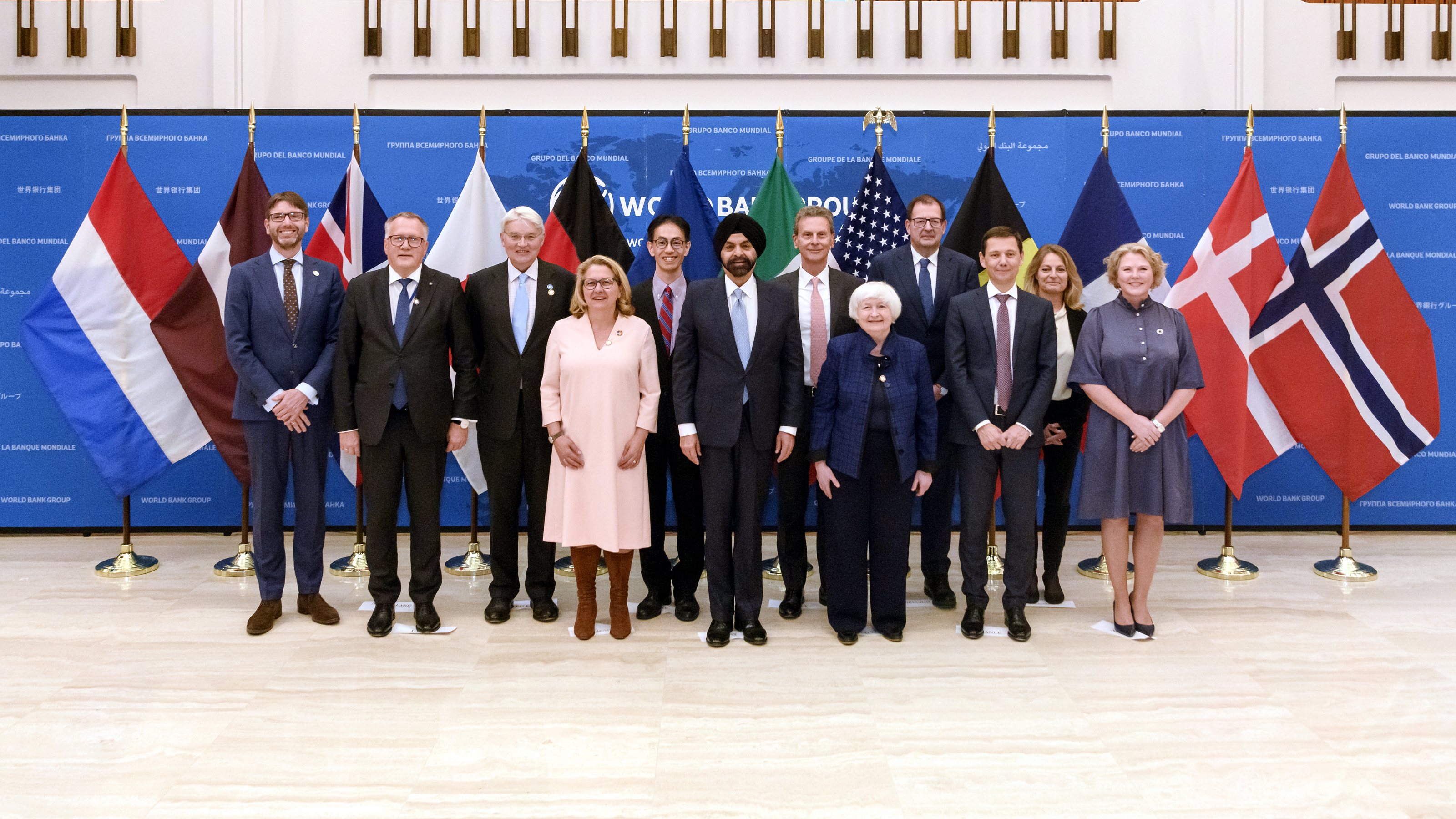Official family photo from the World Bank Spring Meetings
Copyright© World Bank/Joundy Hakim Anthony
World Bank Spring Meeting Additional Billions for Combating Climate Change, Biodiversity Loss and Pandemics
Germany had already pledged 305 million euros in hybrid capital for the World Bank last fall. Today, another ten countries have made corresponding commitments for hybrid capital or guarantees, bringing together a total of 11 billion US dollars. The World Bank can use the new funds to provide up to 70 billion US dollars over ten years via an innovative “Global Solutions Accelerator Platform” (GSAP).
German Development Minister Svenja Schulze: “The World Bank Spring Meeting shows a strong sign of solidarity. Together we have succeeded in making the World Bank not only better, but also bigger. This means more money for combating the global crises of our time. Germany already made its commitment last autumn, many other countries now joined in at a similar scale. It is encouraging how well the World Bank is able to foster constructive multilateral cooperation, even in these geopolitically tense times. The World Bank will be better positioned to provide global public goods than ever before.”
A year and a half ago, Development Minister Schulze, as German World Bank Governor, together with US Finance Minister Janet Yellen, as US World Bank Governor, called for a fundamental reform of the World Bank that would provide more incentives for investments in global public goods such as climate protection, biodiversity preservation or pandemic prevention. A year later, at the World Bank meeting in Marrakesh, a new vision statement for the World Bank was adopted: “A world free of poverty on a livable planet”. This enabled a fundamental shift with a real change of direction: fighting poverty and preserving our planet now go hand in hand. Germany was also the first country to announce that it would support a reformed bank with additional financial resources. Germany has thus responded to the urgent needs of a larger bank.
The new financial resources will be used specifically for incentives for middle-income countries that invest in global public goods. This can, for example, mean that investments in an electrified railway line become more attractive than building an expressway, or that countries decide to build laboratory capacities for pandemic prevention, which ultimately benefits not only the individual country, but the entire world.

